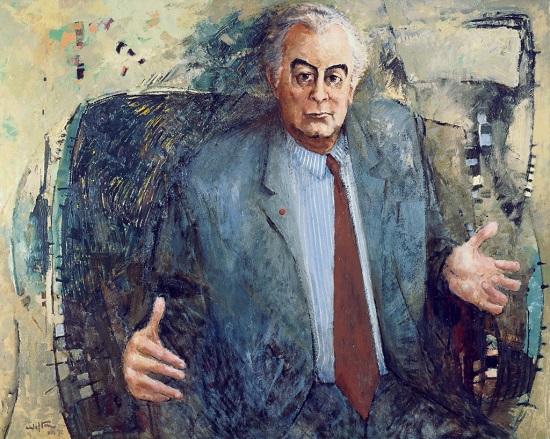“Gough Whitlam changed the way Australia thought about itself and gave the country a new destiny. A more inclusive and compassionate society at home – a more engaged and relevant country abroad.
“He snapped Australia out of the Menzian torpor – the orthodoxy that had rocked the country asleep, giving it new vitality and focus. But more than that, bringing Australia to terms with its geography and place in the region.
“Along his journey he also renovated the Labor Party, making it useful again as an instrument of reform to Australian society.
“He will be missed by all who identified with his values and determination to see Australia a better place. But no one will miss him more than his family.”
From the SMH, that was Paul Keating’s summary. That will do me. If you start listing how he changed Australia, you are bound to miss something important, no matter how long the list. He was like no other. Comparison’s are pointless.
This morning I woke to Gerard Henderson on local ABC being mean-spirited about Whitlam’s “incompetence” and a prime minister. The ABC’s idea of ‘balance’. Other than that comments have been universally positive. Certainly politics was always interesting when Whitlam was in power, and he had some wild men in his cabinet.
For my own experience, two things stand out.
Firstly, early in 1975 I was separated from my wife and about 20 months later we had an amicably arranged no-fault divorce. Before Whitlam that would not have been possible. What often happened was that one partner engaged a private eye to catch the other in a compromising situation. Someone had to be at fault. In our case there was nothing to see. The marriage had simply ceased to work.
Secondly, when Whitlam was elected I was the first ever Supervisor, School Library Service, for the Queensland Government. School libraries had been in a dreadful state, but some progress had been made with the Commonwealth funded Secondary Schools Libraries Program. For primary schools we were trying to improve things but there was a desperate lack of resources.
Come the Whitlam government and we soon had a primary schools library program, plus lots of special needs programs and massive general funds for schools generally. I remember visiting Catholic parish primary schools that were literally falling down. I remember talking to a private school headmaster who said that he had always assumed that private school facilities were better. Not now. Government schools were building facilities as good or better than anything the private schools had to offer.
Overall, I recall for the first time feeling proud to be an Australian. We no longer had to apologise on multiple fronts.
This morning I learned something new about Whitlam. Susan Mitchell, who has a biography of Margaret Whitlam coming out soon, said he was actually a very shy man. And absolutely hopeless at small talk. Margaret had to cover that department for him.
My favourite story about Gough was the time he took the press gallery down to Manly beach. Gough strode out upon the waters, turned around, waved to the gallery and strode back to land without getting his feet wet. The headlines next day?
-
GOUGH WHITLAM CAN’T SWIM!
May he rest in peace. We will never see his like again.
Here’s Clifton Pugh’s 1972 portrait:

Update: Be sure to check out wpd’s list of achievements @ 2.
Update 2:
John Quiggin has done an excellent assessment of Gough Whitlam.
More than any other Australian political leader, and arguably more than any other political figure, Gough Whitlam embodied social democracy in its ascendancy after World War II, its high water mark around 1970 and its defeat by what became known as neoliberalism in the wake of the crises of the 1970s.
In all of this Whitlam is emblematic of the social democratic era of the mid-20th century. Despite the resurgence of financialised capitalism, which now saturates the thinking of all mainstream political parties, the achievements of social democracy remain central to our way of life, and politicians who attack those achievements risk disaster even now.
With the failure of the global financial system now evident to all, social democratic parties have found themselves largely unable to respond. We need a renewed movement for a fairer society and a more functional economy. We can only hope for a new Whitlam to lead that movement.
Elsewhere there’s Phillip Adams’ repeat of the 20th anniversary of the Dismissal.
